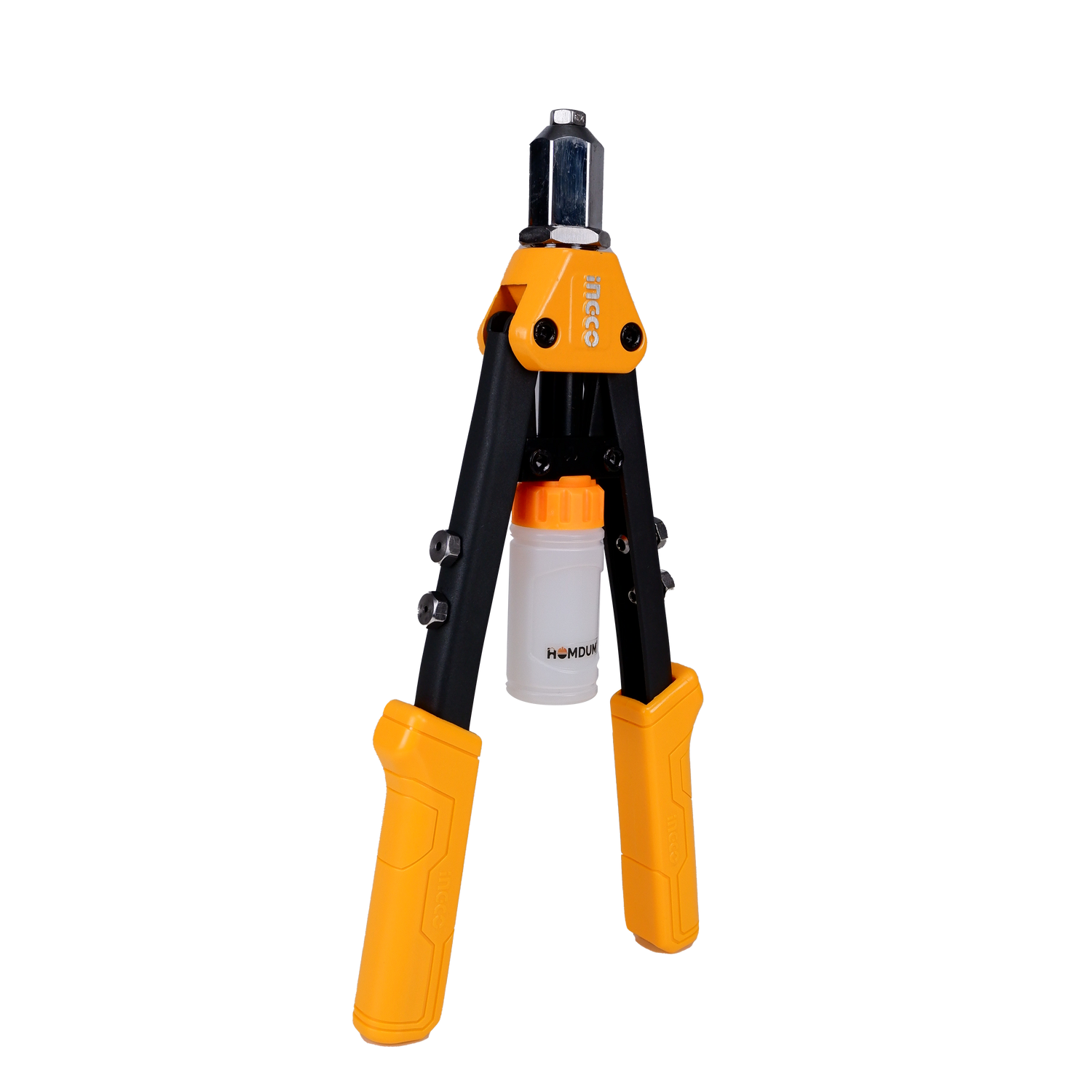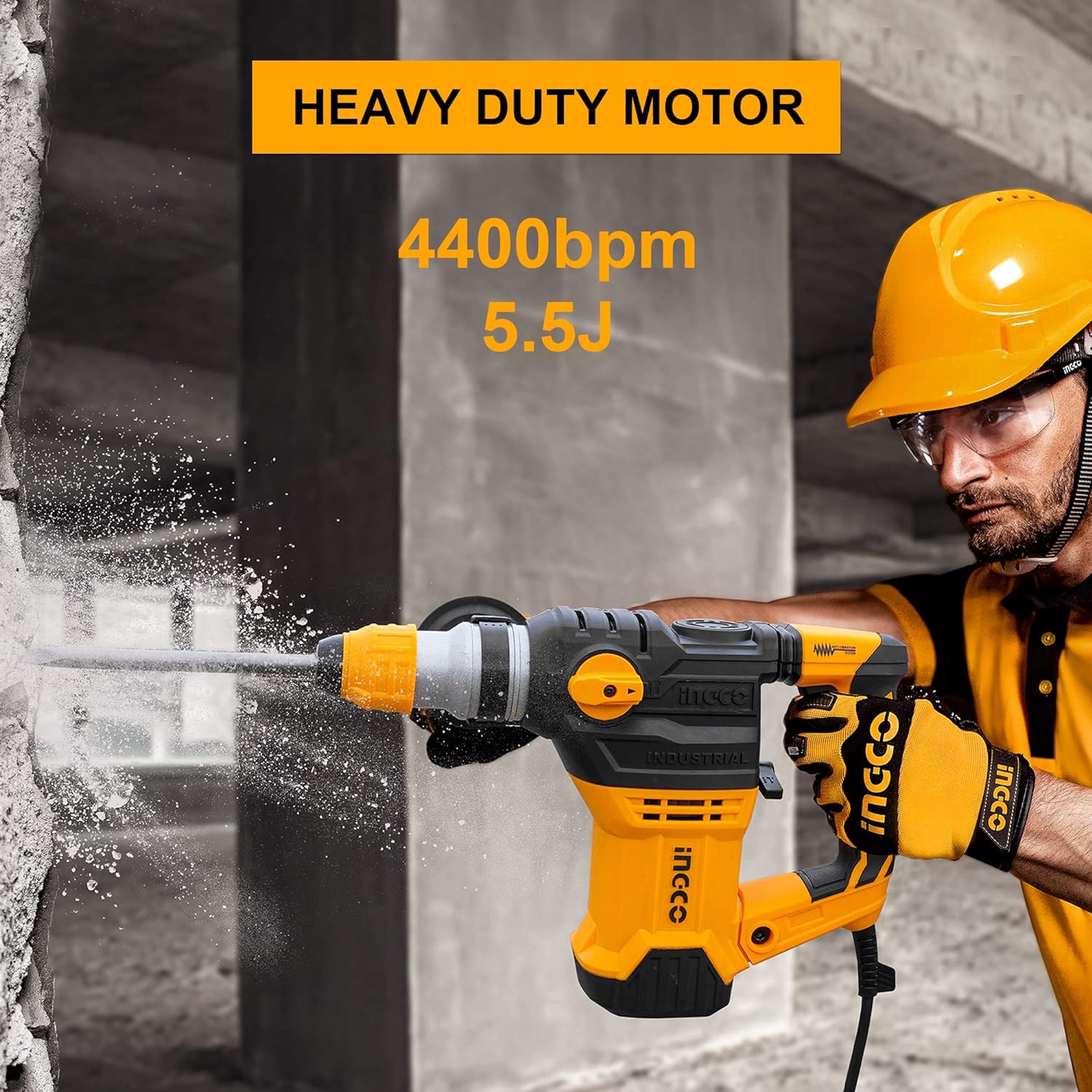When it comes to fastening rivets quickly and efficiently, having the right rivet gun makes all the difference. Whether you're in automotive repair, construction, or metalworking, choosing between an air rivet gun and an electric rivet gun can be tricky.
Both have their pros and cons, so in this guide, we'll compare air rivet guns and electric rivet guns to help you decide which one is the best fit for your needs.
What is an Air Rivet Gun?
An air rivet gun, also known as a pneumatic rivet gun, operates using compressed air to install rivets. These guns are widely used in automotive assembly, aerospace, and heavy-duty industrial work because of their high power and efficiency.
✅ Pros of Air Rivet Guns:
✔ Fast and Powerful – Delivers high force, making it ideal for large-scale projects.
✔ Lightweight – Since it doesn’t have an onboard motor, it's easier to handle.
✔ Minimal Vibration – Reduces hand fatigue, allowing for extended use.
✔ Great for High-Volume Work – Perfect for industries that require continuous riveting.
❌ Cons of Air Rivet Guns:
❌ Requires an Air Compressor – You must invest in a good air compressor, which adds cost.
❌ Limited Portability – Since it depends on an air hose, mobility can be restricted.
❌ Noisy Operation – Pneumatic tools tend to be louder compared to electric tools.
Best For: Professional workshops and manufacturing units that handle high-volume riveting tasks.
What is an Electric Rivet Gun?
An electric rivet gun runs on battery power or a direct electric connection, offering a cordless and portable alternative to pneumatic models. These are widely used in construction, home improvement, and fieldwork, where mobility is essential.
✅ Pros of Electric Rivet Guns:
✔ Cordless and Portable – No need for an air compressor or hose. Ideal for on-site work.
✔ Easy to Use – Just plug and play, making it perfect for DIY users and small workshops.
✔ Lower Initial Cost – No need to invest in an air compressor setup.
✔ Quieter Operation – Runs much quieter than pneumatic models.
❌ Cons of Electric Rivet Guns:
❌ Heavier Than Air Rivet Guns – The onboard motor and battery add weight.
❌ Lower Power Output – Not as powerful as air rivet guns for industrial-grade applications.
❌ Battery Limitations – If it's cordless, you'll need to recharge or keep spare batteries.
Best For: DIYers, contractors, and mobile technicians who need a portable and easy-to-use rivet gun.
Air Rivet Gun vs. Electric Rivet Gun: Side-by-Side Comparison
|
Feature |
Air Rivet Gun |
Electric Rivet Gun |
|
Power Source |
Compressed Air |
Battery/Electric |
|
Portability |
Limited (requires hose) |
High (cordless models available) |
|
Ease of Use |
Requires air setup |
Plug-and-play |
|
Best for |
High-volume, professional use |
DIY, fieldwork, general repairs |
|
Noise Level |
Louder |
Quieter |
|
Cost |
Higher (requires compressor) |
Lower (no extra setup needed) |
|
Weight |
Lightweight |
Heavier (motor and battery) |
Which One Should You Buy?
Choose an Air Rivet Gun if:
✔ You need high-speed riveting for large-scale or industrial projects.
✔ You already have an air compressor setup in your workshop.
✔ You want a lightweight tool for long working hours.
Choose an Electric Rivet Gun if:
✔ You work on-site or in places without air compressors.
✔ You prefer a portable, easy-to-use tool.
✔ You don’t need high-volume riveting daily.
Final Verdict
Both air rivet guns and electric rivet guns have their strengths, and the right choice depends on your work environment and project requirements.
If you're in an industrial setting, go for an air rivet gun for efficiency and power. If you need portability and ease of use, an electric rivet gun is the way to go.
🔍 Looking for the best rivet guns at great prices? Check out Homdum for top-quality power tools and accessories!




Leave a comment
This site is protected by hCaptcha and the hCaptcha Privacy Policy and Terms of Service apply.